Philippines
Report on Integration of HVWSHE Teaching-Learning Materials in Philippines: Assessment of country experiences
Project WESS
(Water Education and Sanitation in Schools)
DepEd-Manila
Water and sanitation is crucial to development. As the world population tripled in the 20th century, the use if renewable water resources has grown sixfolds. Water and Sanitation Development has not always been sustainable and many are convinced there is a world crisis on the subject.
Schools
In July 2003, the Department of Education presented to all regional directors, schools division superintendents and other educators directly concerned with schools and schoolchildren, a program concept named Water for Philippine Public Schools Program.
Cognizant of the lack of necessary water system infrastructure to provide safe drinking water and/or sanitary facilities resulting to water-borne diseases and outbreak of water contamination in some parts of the city, DepEd-Manila initiated Project: WESS (Water Education and Sanitation in Schools). This project builds on the initial recommendations made during the Manila workshop on Project Values-Based Water and Sanitation Education (VBWSE) IN 2003.
Seventy one (71) public elementary and thirty two (32) secondary schools, in partnership with Manila Health Department, MWSI, MWCS and UNICEF.
Project Objectives
To facilitate and promote awareness and appreciation, Project WESS is guided by the following objectives:
- To keep abreast of emerging state and water education trends and standards, and to stay in touch with the educational needs of pupils.
- To produce and publish creative and informative materials to meet the needs identified through research.
- To provide leadership training and instruction to ensure that materials and services are fully utilized, and to foster grass roots participants in their capacities to educate others.
- To form partnership with organizations to enhance awareness, distribution of materials and services.
- To improve the program through an aggressive, on-going, and multi-faceted evaluation program.
- To seek ways to acknowledge and recognize people and organizations for their contribution to Project: WESS.
Component 1 – Assessment
Component 2 - Curriculum Integration
Component 3 – Water System Infrastructure Improvement
Infrastructure upgrading program for schools is implemented. Continuous repair and rehabilitation of water system and toilets is undertaken by the city government, DepEd and PTCA.
Resources and Source of Support
DepEd-Manila collaborates with the City Government and non-government organization in providing water and sanitation facilities to all public elementary and secondary schools.
DepEd-Manila’s Role
DepEd-Manila provides for educational information campaign and curriculum integration of water education and sanitation in all grade/year levels and subject areas.
Local Government Unit’s Role
Local government unit provides financial assistance in undertaking water infrastructure system and sanitation development program.
Technical assistance is also provided in the conduct of water testing and medical treatment respectively undertaken.
Non-Government Organizations
NGO’s give support to DepEd-Manila and LGU in the management of water and sanitation facilities.
Implementation Strategies
•Advocacy and Orientation Meetings
•Water Supply and Risk Assessment
•Curriculum Integration
•Water Quality Monitoring
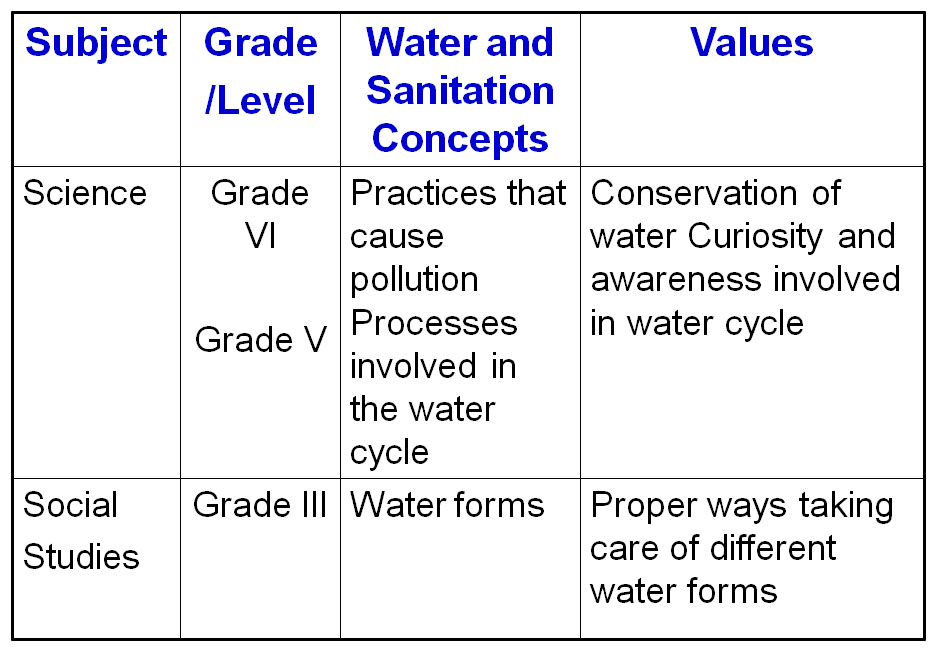
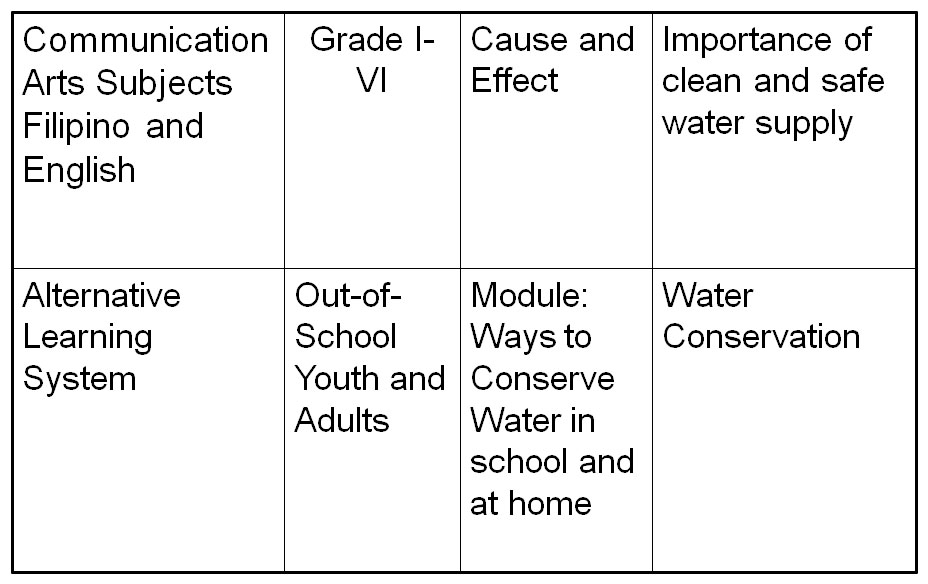
Interventions
•Repiping were done in 1 elementary school and 5 secondary schools
•Repair of toilets and improvement of water supply system were accorded to 14 schools (10 elementary schools and 4 secondary schools).
•Plastering of leaking pipes
•Flushing of water in the affected pipes
•Checking the plumbing system
•Regular cleaning and checking of school overhead tanks, drinking fountain and cistern
•Information campaign on water education and sanitation
•Prototype lesson plans were prepared in various subject areas in all grade/year levels
ACCOMPLISHMENTS/UPDATES
Component 1
•Water samples from 103 Manila schools are continuously being monitored and tested for coliform organism contamination. Schools whose water supplies were found to have been contaminated were given assistance in terms of:
•Water treatment, repiping of water connections, manpower to maintain cleanliness of water cistern and reservoir;
Component 2
- Training course on integration of HVWSHE attended by teachers, supervisors and principals on August 27-29, 2007 at SEAMEO INNOTECH.
- Modules in the different subject areas/grade levels prepared for classroom were used.
- Issued resource package in the training program which were utilized for demonstration lessons.
- Prototype lesson plans have been prepared for teacher implementers.
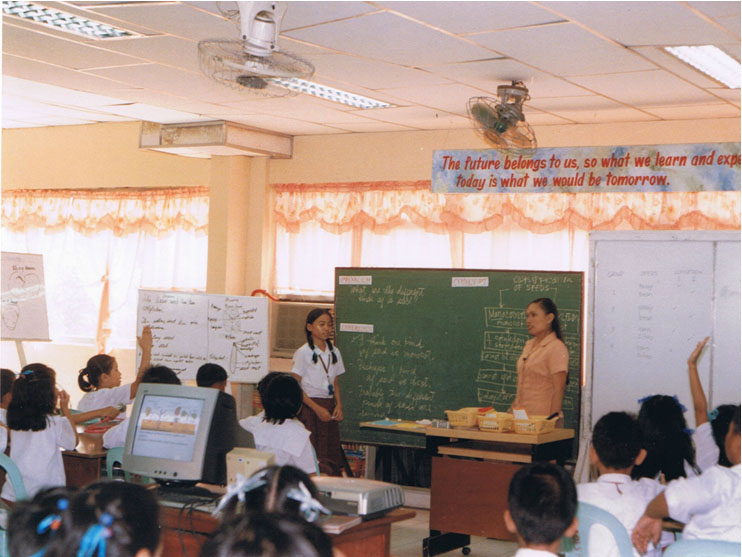
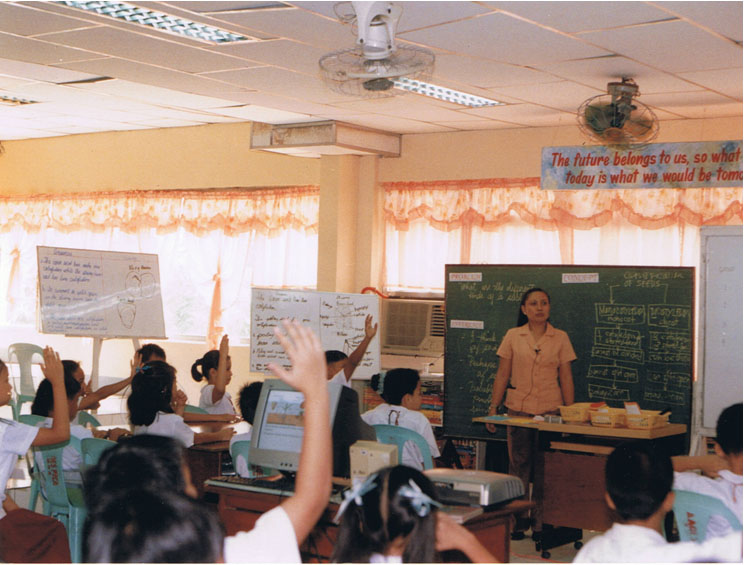
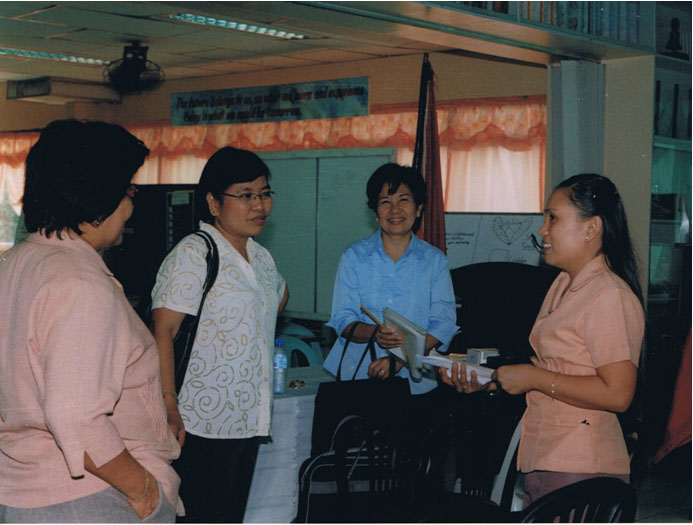
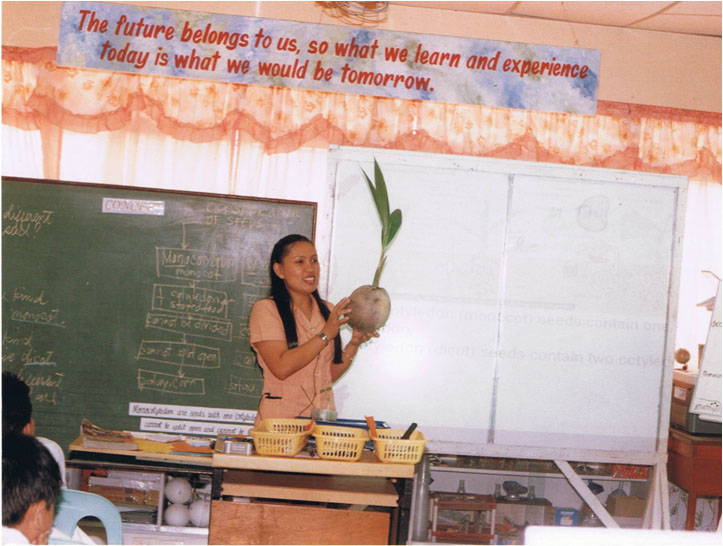
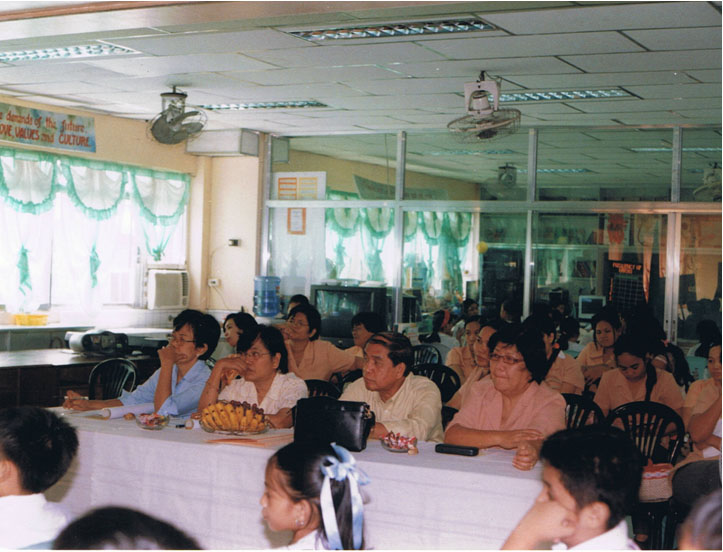
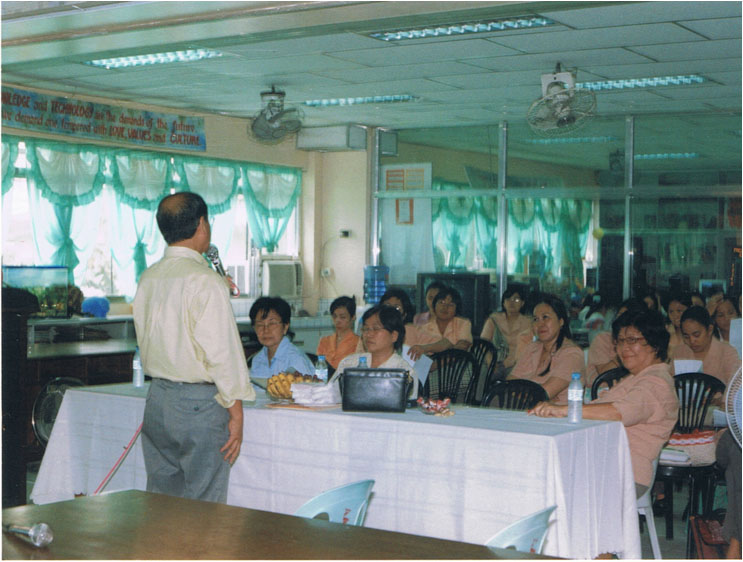
Component 3
- 100 % of Manila schools’ water supply were assessed and monitored.
- 100% water pipe connections were repaired and rehabilitated
Challenges
•Financial constraints in the rehabilitation and repair of all the water system and sanitation in all Manila schools.
•Full support/involvement of all stakeholders in the process
Future Plans
•Require schools to submit comprehensive program on water system and sanitation for the year 2009-2010.
CONCLUDING STATEMENT
•Based on the goals and objectives of the project of the Department of Education, DepEd-Manila is doing everything to provide the 286,000 school children potable drinking water and sanitary facilities for social and economic stability in a healthy environment.